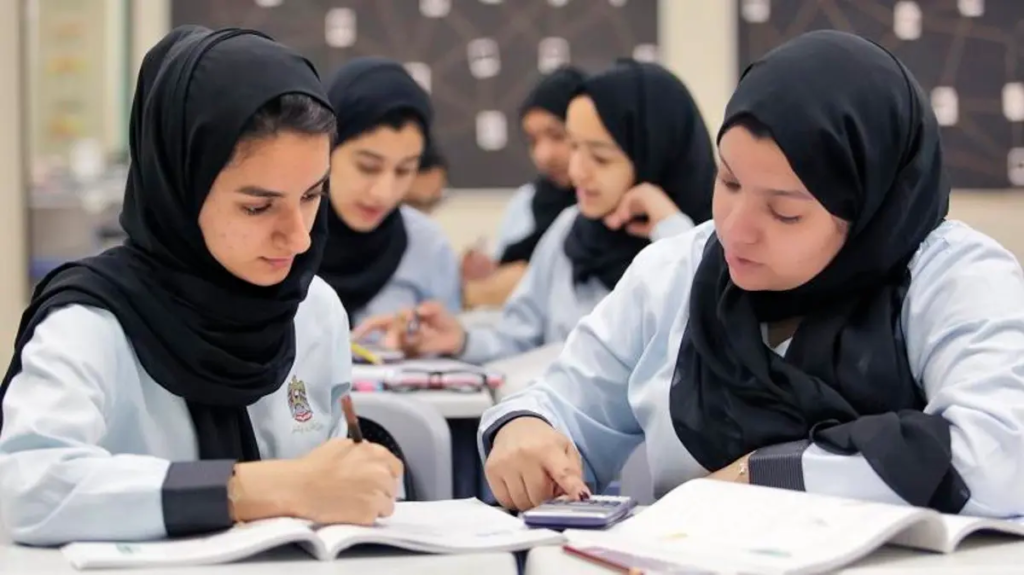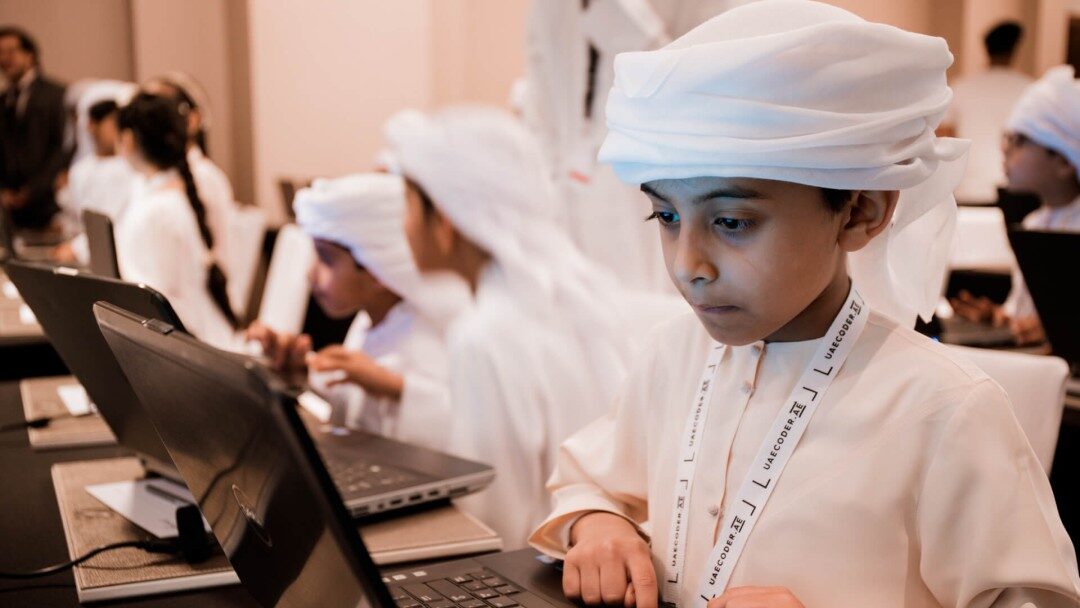Higher education is undergoing a transformation, and Dubai is at the forefront of this revolution. With the rapid growth of technology, universities in the UAE have embraced e-learning as a key tool to enhance the student experience. E-learning is not just a temporary solution; it has become a central part of the educational landscape, offering flexibility, accessibility, and innovative ways of learning that were previously unimaginable.
The shift toward online education has been accelerated by global events, technological advancements, and changing student expectations. Dubai, known for its futuristic vision and investment in smart technologies, has leveraged these opportunities to redefine higher education. E-learning platforms, virtual classrooms, and digital resources are now integral to universities, creating a dynamic learning environment for students and educators alike.
Increased Accessibility for Students
One of the most significant impacts of e-learning on higher education in Dubai is the increased accessibility it provides. Students from diverse backgrounds can now access quality education without being constrained by geographical boundaries. International students, in particular, benefit from online programs that allow them to pursue degrees from prestigious Dubai universities without relocating.
Moreover, e-learning accommodates students with varying schedules and responsibilities. Working professionals, parents, or those involved in multiple commitments can now balance education with personal and professional life. This flexibility ensures that learning is inclusive and available to a wider audience, fostering a culture of lifelong learning.
Personalized Learning Experience
E-learning has revolutionized the traditional classroom by allowing personalized learning experiences. Digital platforms can tailor educational content according to individual student needs, pace, and learning style. Artificial intelligence tools, interactive modules, and adaptive learning systems enable students to focus on areas where they need improvement, making the learning process more effective.
In Dubai, universities have integrated these personalized approaches to ensure students not only grasp theoretical concepts but also develop practical skills. This approach increases engagement and improves retention, creating confident learners who are prepared for real-world challenges.
Enhancing Collaboration and Interaction
Contrary to the misconception that online learning isolates students, e-learning platforms in Dubai foster collaboration and interaction in innovative ways. Virtual classrooms, discussion forums, and group projects enable students to communicate and work together regardless of physical distance.
Teachers can use video conferencing tools, live chat, and interactive whiteboards to engage students in real-time discussions. This level of interaction ensures that students remain connected with their peers and faculty, maintaining the social and intellectual aspects of traditional education while embracing the convenience of digital learning.

Expanding Educational Resources
E-learning has dramatically expanded the range of educational resources available to students. In Dubai, higher education institutions provide access to extensive digital libraries, research databases, online journals, and multimedia content. Students can now explore subjects beyond the standard curriculum and engage with global knowledge networks.
This abundance of resources encourages self-directed learning and critical thinking. Students can experiment, analyze, and apply knowledge in creative ways, preparing them for the demands of a competitive workforce. By integrating diverse digital resources, Dubai’s universities empower students to pursue deeper understanding and innovation.
Flexibility and Time Management
The ability to manage one’s own learning schedule is a key advantage of e-learning. Students in Dubai can attend lectures, complete assignments, and engage in projects at times that suit them best. This flexibility reduces stress, improves focus, and allows students to integrate education into their busy lives seamlessly.
Additionally, time management skills gained through e-learning are invaluable for professional success. By navigating deadlines, prioritizing tasks, and balancing multiple commitments, students develop habits that extend beyond academics and into personal and career growth.
Improving Digital Literacy and Technical Skills
E-learning does not just teach academic subjects—it also equips students with essential digital skills. In Dubai’s higher education institutions, students become proficient in using learning management systems, online research tools, communication platforms, and collaboration software.
These technical skills are highly relevant in today’s global job market, where digital literacy is a fundamental requirement. By incorporating technology into daily learning, Dubai universities prepare students for modern workplaces, enhancing employability and career readiness.
Supporting Lifelong Learning
The impact of e-learning extends beyond formal education. It encourages a culture of lifelong learning where students continue to explore new topics, update skills, and engage in professional development. Dubai’s universities offer online courses, workshops, and certification programs that allow alumni and professionals to keep learning without the need to enroll in traditional programs.
This approach nurtures curiosity, adaptability, and continuous improvement qualities essential for success in a rapidly evolving world. E-learning ensures that education does not end with graduation; instead, it becomes a continuous journey.

Promoting Innovative Teaching Methods
E-learning has transformed the role of educators in Dubai’s higher education system. Teachers are no longer confined to lecturing; they now act as facilitators, guiding students through interactive content and digital projects. Gamification, simulations, and virtual labs provide hands-on learning experiences, making complex subjects easier to understand.
This innovation in teaching methods enhances engagement, motivation, and comprehension. Students are encouraged to think critically, solve problems, and apply knowledge practically, making learning more meaningful and impactful.
Addressing Challenges and Limitations
While the benefits of e-learning are undeniable, it comes with certain challenges. Students may face issues such as digital fatigue, lack of motivation, or difficulties in maintaining self-discipline. Additionally, not all students have equal access to reliable internet and devices, which can create disparities.
Dubai’s universities are addressing these challenges by providing technical support, mentorship programs, and blended learning models that combine online and offline experiences. By proactively tackling limitations, institutions ensure that e-learning remains effective and inclusive.
Future Prospects of E-Learning in Dubai
The future of e-learning in Dubai is bright and full of potential. Emerging technologies such as artificial intelligence, virtual reality, and augmented reality promise to make learning even more immersive and interactive. Students can experience virtual laboratories, explore historical sites digitally, or collaborate in global classrooms without leaving Dubai.
Universities are also exploring partnerships with international institutions, opening doors to global knowledge and research opportunities. E-learning will continue to evolve, shaping a higher education ecosystem that is flexible, innovative, and globally connected.
Conclusion
E-learning has transformed higher education in Dubai by providing accessibility, flexibility, and innovative learning experiences. It has empowered students to take control of their education, collaborate effectively, and develop skills essential for modern careers. While challenges exist, proactive measures by universities ensure that online learning remains inclusive and impactful.
The integration of technology in education has not only enhanced the learning process but also prepared students for a future where digital proficiency and adaptability are key. Dubai’s commitment to e-learning reflects its vision of creating a world-class education system that nurtures talent, fosters innovation, and equips learners to thrive in a rapidly changing world.
As e-learning continues to advance, it will redefine higher education, making it more accessible, personalized, and dynamic. Dubai stands as a shining example of how technology can elevate education, transforming the way knowledge is shared, acquired, and applied for generations to come.
Do follow Gulf Magazine on Instagram.
Also Read – Dubai Encourages Girls in STEM Fields: Empowering the Next Generation



